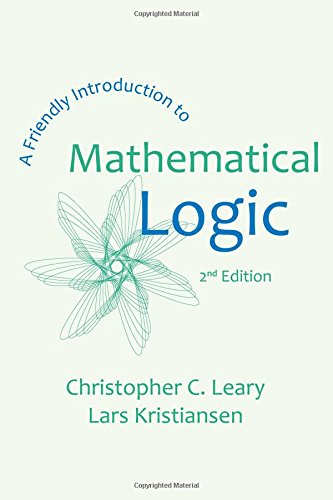
A Friendly Introduction to Mathematical Logic
by Christopher C. Leary, Lars Kristiansen
Publisher: Milne Library Publishing 2015
ISBN-13: 9781942341079
Number of pages: 380
Description:
At the intersection of mathematics, computer science, and philosophy, mathematical logic examines the power and limitations of formal mathematical thinking. In this edition, readers with no previous study in the field are introduced to the basics of model theory, proof theory, and computability theory. The text is designed to be used either in an upper division undergraduate classroom, or for self study.
Download or read it online for free here:
Download link
(1.7MB, PDF)
Similar books
 Mathematical Logic
Mathematical Logicby Stephen G. Simpson - Pennsylvania State University
Lecture notes for all mathematics graduate students. The text covers propositional calculus, predicate calculus, proof systems, extensions of the predicate calculus, theories, definability, interpretability, arithmetization and incompleteness.
(16501 views)
 Logic for Computer Science
Logic for Computer Science- Wikibooks
This book provides a survey of mathematical logic and its various applications. After covering basic material of propositional logic and first-order logic, the course presents the foundations of finite model theory and descriptive complexity.
(10309 views)
 Symbolic Logic: A First Course
Symbolic Logic: A First Courseby Gary Hardegree - Mcgraw-Hill College
Contents: Basic Concepts of Logic; Truth-Functional Connectives; Validity in Sentential Logic; Translations in Sentential Logic; Derivations in Sentential Logic; Translations in Monadic Predicate Logic; Translations in Polyadic Predicate Logic; etc.
(16782 views)
 Introduction to Mathematical Logic
Introduction to Mathematical Logicby Vilnis Detlovs, Karlis Podnieks - University of Latvia
From the table of contents: 1. Introduction. What Is Logic, Really?; 2. Propositional Logic; 3. Predicate Logic; 4. Completeness Theorems (Model Theory); 5. Normal Forms. Resolution Method; 6. Miscellaneous (Negation as Contradiction or Absurdity).
(11243 views)